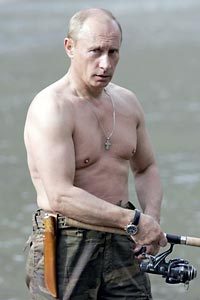I have never quite understood the argument that gay sex is “unnatural.” Unless one believes that the only natural sex is that which reproduces the species, then how one chooses to express sexuality is as natural as differences in hair or skin color. If we admit that sex can be a means of expressing love, affection and physical pleasure rather than purely a reproductive act, then how one goes about doing that is as natural as variations in climate or on a theme. It does not matter if sexual preference is by “choice” or genetics or some combination thereof. Once the reproductive imperative is removed as the sole reason for having sex, then how one chooses to partake is almost limitless (I say “almost” because I adhere to convention that sex should be between consenting adults, or in the case of teenagers, between those of similar age, and that no coercion or exploitation can be involved).
I introduce the subject of gay marriage this way because I simply fail to understand why it is an issue. When I hear opponents argue against it I am reminded of the old Argentine saying about Catholic clergy opposed to divorce: if they do  not like divorce they should not marry. Or the more recent retort: if one does not like gay marriage then one should not marry a gay.
One thing is clear. The reproductive imperative does not apply to the legal recognition of straight marriages. Many heterosexual couples are childless by choice or circumstance. Some fulfill their parental instinct via adoption or with the help of surrogates, but others do not. In all cases they are legally free to marry.
Having thought about it a bit in light of recent arguments arising out a parliamentary bid to legalize gay marriage, it strikes me that the debate can be seen in simple game theoretic fashion.
Those opposed to gay marriage see the outcome if it is legalized in zero or negative sum terms. Awarding the right to marry to homosexuals will directly and negatively impact on heterosexual marriage. The belief is that awarding gays the right to marry comes at the immediate expense of heterosexual marriages, and that something will be directly lost or detracted from the latter if the former is permitted. Worst yet, the situation could become collectively negative sum if gays are allowed to marry: both gays and straights will suffer losses as a result (this is usually seen in the “children need hetero parents” argument, but extends to the costs of awarding full rights to married gay couples when it comes to family-oriented taxation, insurance and health benefits). The bottom line is that awarding equal marriage rights to gays (as a sexual minority) will impose costs or losses on the sexual majority, and therefore should not allowed under the lesser evil principle because collectively it is a lose-lose proposition.
Those in favor of gay marriage see the issue in even or positive sum terms. They see gay marriage as taking nothing from nor adding to hetero marriage, or in the most optimistic view, enhancing the value of marriage as an institution by extending the franchise to those of same-sex persuasion who wish to monogamously commit to each other in the eyes of the state (I will leave aside issues about non-monogomous unions and plural marriages in order to make the first-order point). In this view gay marriage should be encouraged as it deepens the familial bases of social stability and is therefore a greater good for society as a whole. It is a win-win solution.
Whatever other issues are put forth pro and con, it seems to me that this is the real crux of the issue. The rantings of bigots and extremists are not addressed here simply because they do not matter. I include in this God-botherers and other repressed and closeted people who act out of irrational psychological fear. Nor do I care to indulge the arguments of some extremists who think anything goes and there should be no prohibitions on sexual contact (say, the Man-Boy Love Association crowd). Here I am simply trying to distill the rational arguments in favor and against.
For me the issue is certainly even sum and probably positive sum. If we accept that one major source of social decay is the decline of the “traditional” family defined by heterosexual marriage, then it seems to me that one good response is to encourage the rise of “non-traditional” families as a complement. After all, “traditional” gender roles have been altered over the years (I would say for the better) without killing off the majority notion of marriage and family as the pillars of society, so I do not see how non-traditional marriage and families will be any more harmful to social stability than allowing women the vote or non-whites to have equal civil rights.
With regard to marriage specifically, there are already precedents for taking what was non-traditional or even taboo and making it commonplace. For example, marriages of mixed race or inter-faith couples, or those with intellectual or physical disabilities, once were viewed as suspect or dangerous (often on reproductive grounds), and in some cases legally proscribed. Today they are additional and welcome threads that rather than harm have added to the vibrancy of the matrimonial fabric of complex societies.
Anyway, this may be obvious to KP readers given their ideological dispositions. The point I am trying to make is that marriage is not a pie with a finite number of slices, where giving one slice to gays will mean that there is not enough left for straights. To the contrary, marriage should be seen as an expanding pie in with we can all share regardless of sexual preference because we commonly appreciate the order and stability it helps bring to our individual and collective lives. I reckon that is a very traditional way of thinking.

 Via Scott Yorke’s excellent
Via Scott Yorke’s excellent